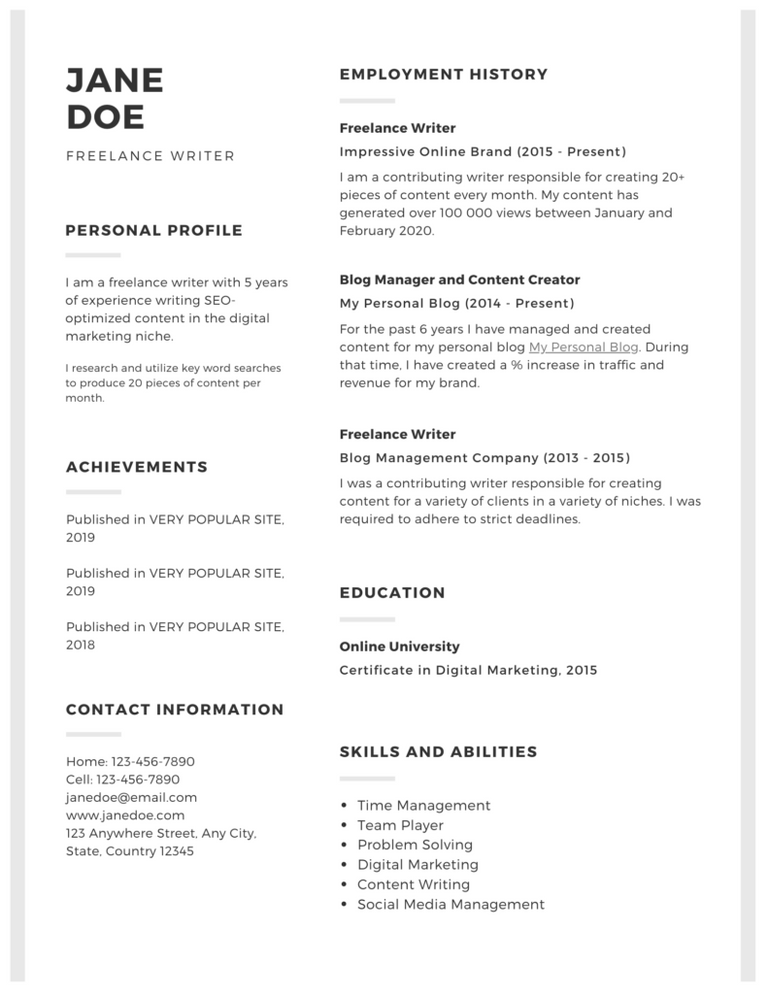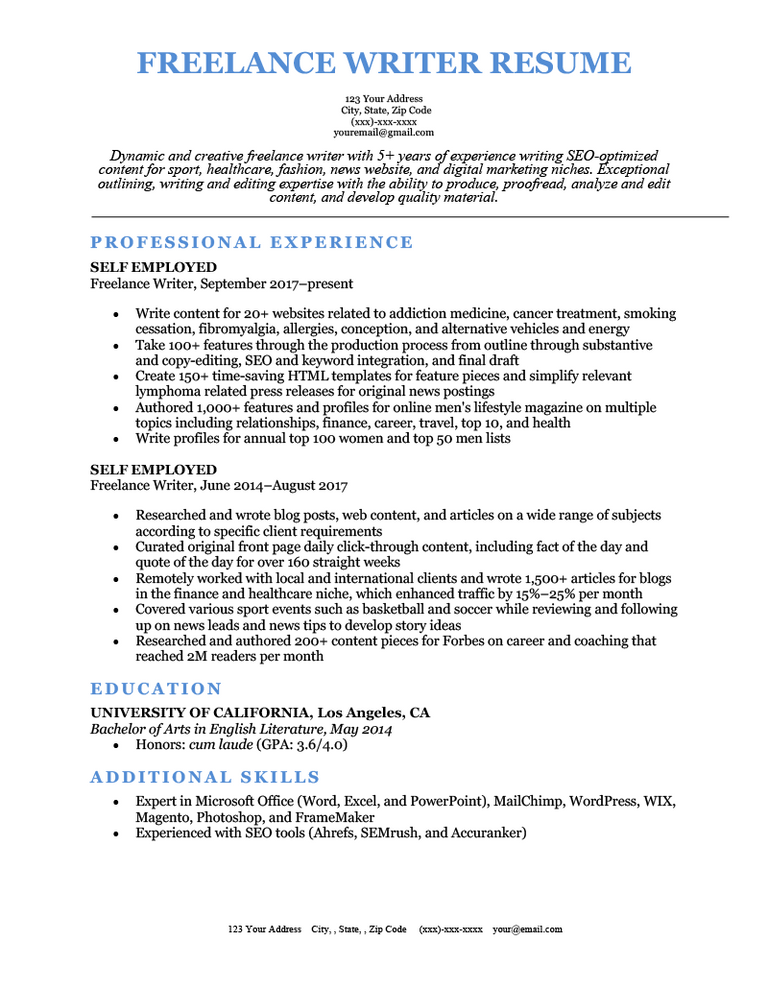
Can I Put Self-Employed on Resume?
Yes, you should - though not verbatim. The term self-employment itself is generally associated with slacking off after quitting/being fired, or simply as a filler for resume gaps.
You see, recruiters care about the skill sets you possess, and in certain cases, how well you fit with the company.
They want someone who can hit the ground running, rather than investing a lot of time, effort, and money to train them for an uncertain reward. Someone who gets the job done, preferably exceptionally.
What they don’t really care about is WHERE you gained the requisite skills.
For those of you at Google, Amazon, Apple, or other prestigious organizations that are irate at reading this, calm down. If you’re from such elite organizations with renowned work cultures, it helps gain brownie points.
Barring that, unless the recruiter has personal experience with any company you’ve worked in, it just does not matter.
So how do you put self-employed on your resume?
Simple, really. Put in the actual job title. Don’t write self-employed, freelancer, etc. These titles are vague, generic & nondescript, and have a slight negative bias attached to them.
Of the two examples below, which seems more appropriate for a content role?
The former, right? Despite both having essentially the same meanings, the one on the left (especially at first glance) seems more apt, fitting & diverse!
Another tip is to put in the exact same job title as the role you’re applying to! Whether it is content writer, copywriter, content creator, social media management, or some allied field, if you’ve done that work, you can tweak the title - you’re the only verifiable source.
Add words like contract, freelancer, consultant, etc. at the end to denote the capacity in which you worked, rather than the phrase ‘self-employed’.
What should you provide in the work experience?
Frankly, structure it like any other stint where you were employed - that is to say mention all the tasks you performed, any key highlights or accomplishments<link to ‘How do you write an impact on a resume?’>, your skills and projects.
Here’s a simple checklist to follow, chronologically:
- Job title - The same as the role you’re applying to, IF APPLICABLE; otherwise, go for the nearest applicable one. Avoid using self-employed and go for alternatives like contract, freelancer, consultant, etc.
- Duration - Mention the duration in a Mon YYYY - Mon YYYY format
- Company - IF you did create your own company/website/pages, use the name, even if it failed. Entrepreneurial spirit and the set of skills such as self-motivation & discipline that come with it don’t go unnoticed
- Responsibilities - Structure the sentences in the same way as an employed stint - include all the relevant and allied tasks performed, tools & skills utilized and projects worked on. Remember to:
- Provide quantified information as it lends credibility
- Mention the companies you worked for/with as a freelancer - take advantage of the smallest chance of network effects
- Highlights - Ensure to mention notable work or accomplishments during your stint as a freelancer
Why should you add freelancer/self-employed on your resume?
Doing so gives you a way to explain gaps in employment when you were not working as an employee.
Believe it or not, it can also HELP in ways that are especially relevant with the paradigm shift in professional life that the pandemic has caused - work from home.
Understandably, freelancers are far more accustomed to this sea change than the average employee in terms of both skills, as well as work ethic (and discipline).
Organizations thus would want to hire them more than ever as they have demonstrated self-management skills preventing any drop in productivity as well.
Lastly, it gives you the flexibility to customize and title yourself as you see fit - a boon for getting a 100% match to every role you apply for by simply tweaking your title to that of the position itself.
TL;DR - Yes, you should write about stints in a self-employment capacity. Just avoid using that term and use the actual job/work title with alternatives like contract, freelancer and consultant in the end. Structure the rest like you would a salaried position. Ensure to provide quantifiable information and achievements, and customize it to make it relevant to positions you;re applying to.






